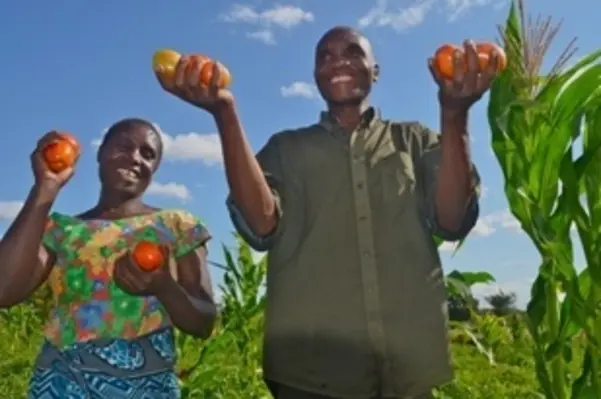The Tanzanian National Bureau of Statistics has received funding from the US governments hunger and food security initiative, Feed The Future, to strengthen the countrys agricultural statistics
A US$1.1mn grant has been provided so that a Feed the Future baseline survey can be conducted, and an additional grant has been provided to finance a study tour for 11 statisticians to enhance their skills.
"It is virtually impossible to develop and implement sound agriculture policies without access to statistics on poverty, malnutrition and annual data on total food production for the population," said Tom Hobgood, the Feed the Future senior adviser in Tanzania.
Training and access to innovative technology for 120 enumerators throughout Tanzania to conduct a 2011 baseline agricultural survey were covered by the grant.
Prior to the use of this unique technology, which included GPS devices, 30 solar backpacks and 130 electronic tablets, all statistics in Tanzania were collected with pen and paper, meaning data could take years to aggregate.
The new tools, equipped with web-based software, provide access to agricultural statistics for all Feed the Future indicators, including stunting, poverty, per capita expenditures in agriculture, exclusive breastfeeding and anemia rates.
Following the completion of the survey, the tools were transferred to the National Bureau of Statistics to be used for future data collection.
The Government of Tanzania praised USAID for introducing the technology, which will allow for more reliable information about the country's 46mn inhabitants.
11 Tanzanian officials travelled to Washington and to Purdue University in October 2012 on a two-week study tour of US agricultural operations and statistical training.
Participants learned about organisation, methodology and programme management for preparing official agricultural statistics.
"The lessons learned during our US study tour are countless," said Mwalim J. Mohammed, head of agriculture and environmental statistics, Office of Chief Government Statistician, Zanzibar.
"In addition to improving our skills, knowledge and working experience, we had ample opportunity to correlate techniques used in agriculture statistics data collection, compilation and dissemination in the US compared to Tanzania.
"Most of the data collection techniques used in the US are more statistically sound than our systems and we learned how to enhance our systems,"
The tour enhanced the statisticians ability to design and collect more accurate and reliable agriculture data, which are used to make policy decisions about regions with food surpluses or deficits. This information is key to identifying populations that may need assistance.
The statisticians can also better understand how to achieve more accurate statistics on key agriculture and livestock commodities.
"Investing in the training and skill development of agriculture statisticians will raise the bar for data gathering throughout Tanzania," said USAID/Tanzania mission director, Sharon Cromer. "[This] not only leads to food security and holistic agriculture sector growth, but also to more accurate information in all sectors in Tanzania."
Efforts are currently underway in 19 countries, several of which are in East Africa, to strengthen agricultural development skills and promote broad-based economic growth.
The US government's hunger and food security initiative, Feed The Future, is funded via the US Agency for International Development (USAID). USAID/Tanzania provided US$24.6mn in 2012 in support of these efforts.
The funds will assist Tanzania in achieving its goal of becoming a middle-income country by 2025.






















